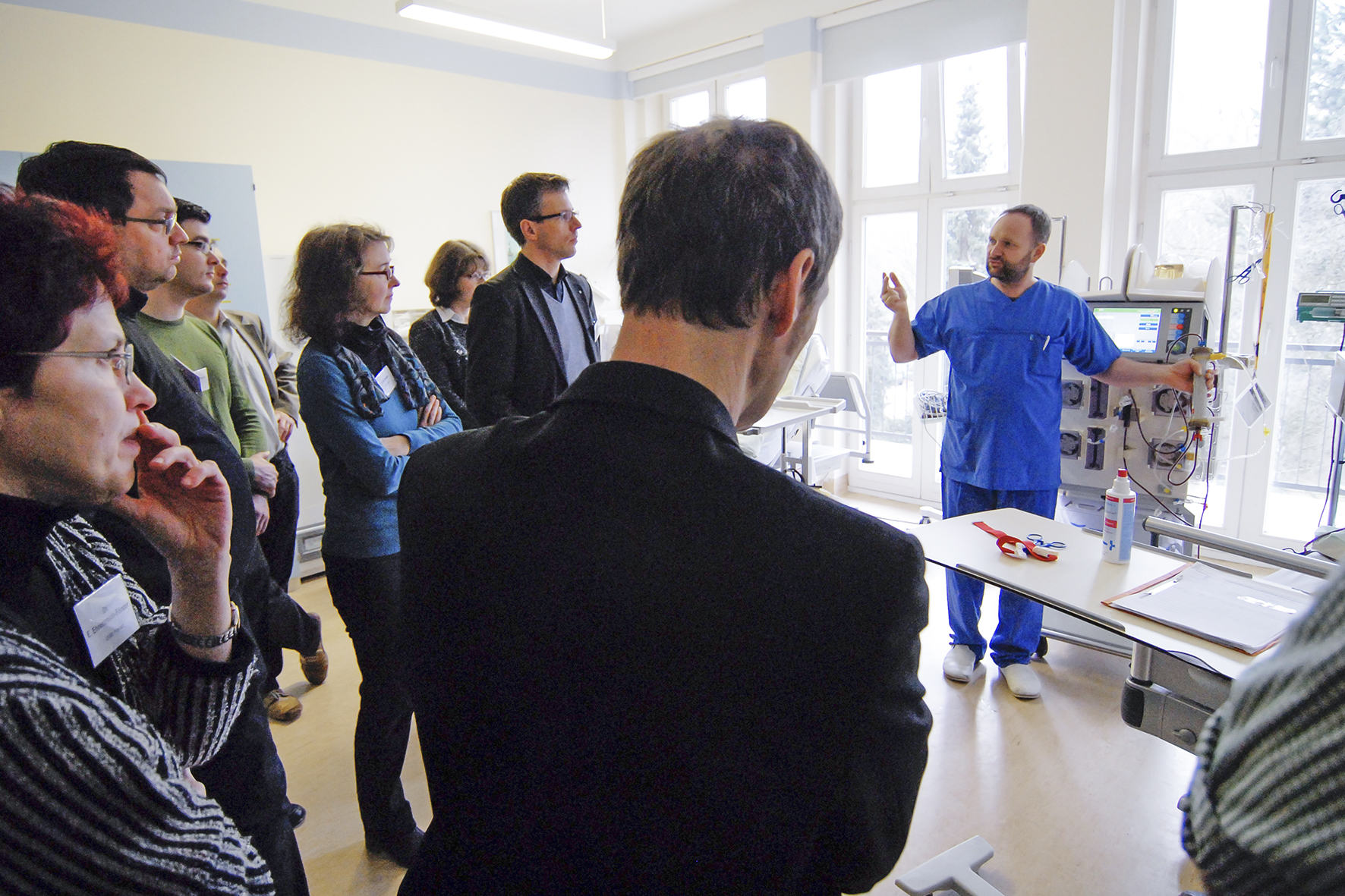Dialysis 2.0
Rostock, February 24–25, 2016. Dialysis has long been used as a form of medical treatment for people suffering from kidney failure who cannot be provided with a donor kidney. The principle of blood purification associated with dialysis has hardly changed over the decades. Only a small number of the toxins that accumulate in the body can be flushed out using dialysis. Many toxins remain in the body, which often then gives rise to a slowly deteriorating state of health. With this in mind, on February 24–25, 2016, Fraunhofer researchers from the fields of medicine, physics, chemistry, materials sciences and biology came together to discuss the latest technological possibilities and pioneering concepts to improve dialysis technology.

This interdisciplinary exchange of ideas focused on topics such as new technologies in the areas of automation, analytics, biomaterials and highly efficient membranes for molecular separation, besides surface modifications.
"This could be the first step to achieving a process that results in a new generation of dialysis options, dialysis 2.0 so to speak," commented the event host, Professor Steffen Mitzner, Head of the Extracorporeal Immunomodulation Unit at Fraunhofer IZI and Head of the Department of Nephrology at University Medicine Rostock, summarizing the findings of the workshop.
The number of people reliant on dialysis is set to increase considerably in the near future and dialysis treatments often have to be carried out over many years. These two facts together entail enormous cost implications for the healthcare system. Substantial improvements to the principle of dialysis could therefore be hugely beneficial not only for patients, but also for health insurance providers and care facilities. Thousands of patients are dependent on dialysis in Mecklenburg-Western Pomerania alone. The workshop was therefore also attended by the State Ministry for Education, Science and Culture.
Further contacts
Prof. Dr. Steffen Mitzner
Extracorporeal Immunomodulation Unit EXIM, Rostock
Phone +49 381 494-2600
steffen.mitzner@izi.fraunhofer.de